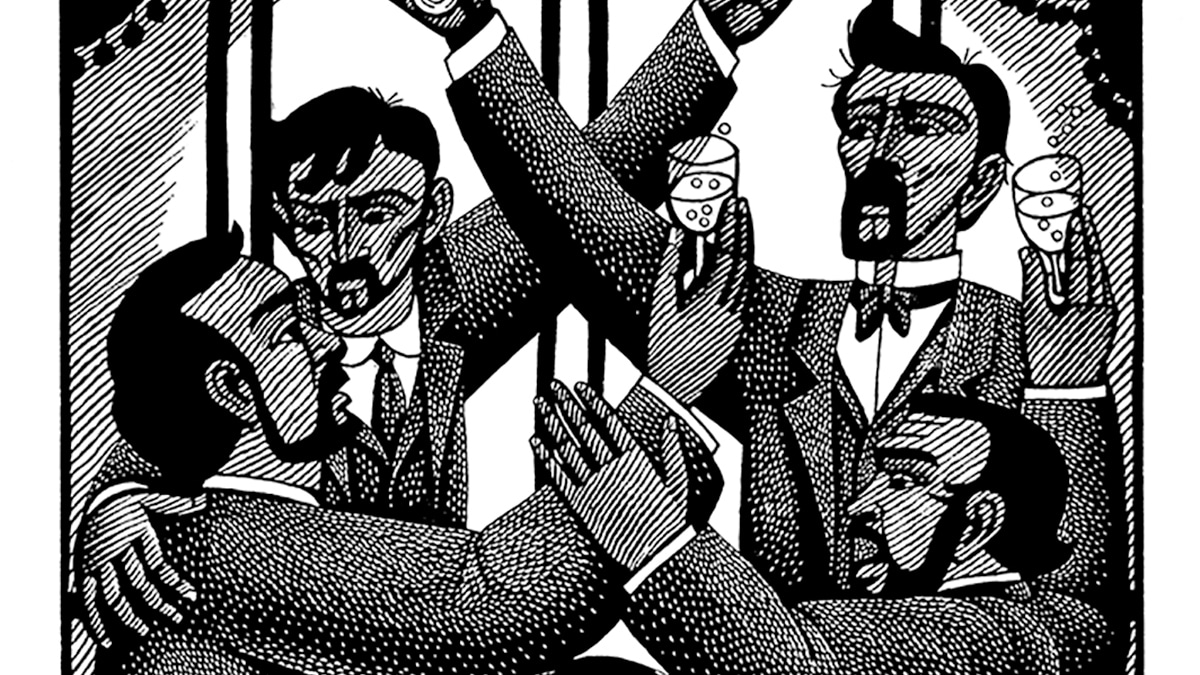The attraction for this collection of seven of Russian literary giant Fyodor Dostoyevsky’s ‘Best Short Stories’ is undoubtedly ‘Notes from the Underground’. The tale takes readers to pretty dark places of the human soul. The psychological insights it provides along the way, divulged by arguably the greatest writer who ever lived (top ten, certainly), may well ring true, but they speak of the malevolence within all of us. “I am a sick man… I am a spiteful man. No, I am not a pleasant man at all.” The famous opening lines introduce readers to the narrator: a man of fantasies who, during the course of the story, acts out a spiteful gesture of revenge against the world and being. We follow his thought processes as he takes out his frustrations on an innocent and desperate young woman.
Occupying just short of 100 of the 232 pages of this collection, ‘Notes from the Underground’ represents almost half of the book. It is not, however, indicative of everything that Dostoyevsky has to offer here. The opening story, ‘White Nights’, similarly follows the adventures of a dreamer, but this narrator is altogether more charming. Encountering Nastenka, a young woman, who is crying by some railings, he consoles her and learns of her misfortune in love. He suggests that they meet at the same time and place the following evening. The more they meet, the more deeply he feels towards her. As a story about the unrequited love between two loners, ‘White Nights’ sits comfortably among Dostoyevsky’s canon, though this was one of his earlier works. What connects it to ‘Notes from the Underground’ is that they are both told from the perspective of a solitary, cerebral and self-absorbed dreamer.

The introduction by prolific American author Joyce Carol Oates traces how the stories also share the theme of obsession, which is one that would reoccur throughout Dostoyevsky’s novels, often at great length and in detail. This collection of short stories is an ideal route into the world of the revered Russian scribe for those uninitiated who have always meant to get around to him, but for whom the heftiness of his tomes has understandably proved off-putting. There are direct connections between these stories and Dostoyevsky’s most celebrated novels.
Dostoyevsky’s typical themes come to a head in the final short story in this collection, ‘The Dream of a Ridiculous Man’. The narrator is another archetypal complex, lonely and nihilistic Dostoyevsky hero. Rather than, as in ‘Crime and Punishment’, persuading himself that it is ethically permissible to commit the perfect murder, this hero corrupts a utopian society by introducing lies and sowing the seeds of division. Perhaps it is the author again predicting the consequences of what Nietzsche, also writing in the late Nineteenth Century, described as “the death of God”. It is remarkable how strongly the story resonates in the digital age.

If you have a taste for often gloomy and introspective literature, usually told from the perspective of a young male on the fringes of society, then the writings of Dostoyevsky have much to recommend. I for one like the moral ambiguity of many of his stories and characters. Dostoevsky is not passing judgement on them, whilst allowing them to discover for themselves the consequences of their beliefs and actions. It is, nevertheless, possible to interpret the lessons of his stories in more ways than one, and that is what makes Dostoyevsky and important and fascinating writer. This collection of short stories may well be your gateway drug to experiencing the page-turner ‘Crime and Punishment’ or the rich family drama of ‘The Brothers Karamazov’. For those who already enjoy Dostoyevsky, this collection of shorter works from different periods of his creative output helps to form a rounder understanding of the prolific author and intellectual giant.
This new edition of Dostoyevsky’s seven ‘Best Short Stories’ by the Folio Society is presented in high quality hard cover and case, with classical gold lettering against a maroon spine. It is illustrated by striking engravings by Harry Brockway, some of which can be seen in this review, but they are printed on standard paper rather than standing out on glossier white paper.

The Folio Society edition of The Best Short Stories of Fyodor Dostoyevsky, translated by David Magarshack, introduced by Joyce Carol Oates and illustrated by Harry Brockway, is available exclusively from The Folio Society.

Publisher: The Folio Society Publication date: October 2021
[rwp-reviewer-rating-stars id=”0″]


